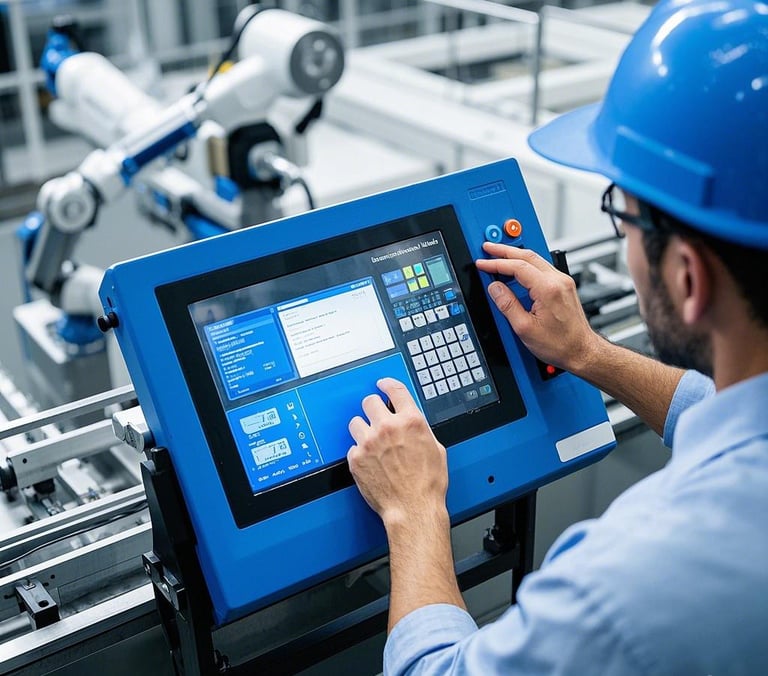The Role of Touch Screens in Modern Factory Automation
In today’s fast-paced industrial landscape, factory automation is revolutionizing the way we manufacture products. At the heart of this transformation are industrial touch screens, which play a crucial role in enhancing efficiency, accuracy, and user experience. In this article, we’ll explore how touch screens are shaping modern factory automation and why they are indispensable in this field.
3/1/20252 분 읽기


1. Centralized Control of Machinery
Industrial touch screens serve as the primary interface for controlling and monitoring machinery in automated factories. Operators can easily manage multiple machines from a single touch screen, reducing the need for manual intervention.
Example: In an automotive assembly line, touch screens allow operators to control robotic arms, conveyor belts, and welding machines with just a few taps.
2. Real-Time Data Monitoring and Analysis
Touch screens enable real-time data visualization, helping factory managers make informed decisions. By displaying key metrics like production rates, machine status, and energy consumption, touch screens provide valuable insights for optimizing operations.
Example: In a food processing plant, touch screens display temperature and humidity levels, ensuring optimal conditions for production.
3. Enhanced User Experience
With intuitive interfaces and multi-touch capabilities, industrial touch screens make it easier for operators to interact with complex systems. This reduces training time and minimizes the risk of human error.
Example: In a smart factory, workers can use touch screens to access detailed schematics, troubleshoot issues, and adjust settings on the fly.
4. Improved Efficiency and Productivity
By streamlining processes and reducing downtime, touch screens contribute to higher efficiency and productivity in factory automation.
Example: In an electronics manufacturing facility, touch screens enable quick changeovers between product lines, minimizing production delays.
5. Real-World Applications of Touch Screens in Factory Automation
Automotive Industry:
Touch screens control robotic arms for precision welding and painting.
Operators monitor assembly line speed and quality in real time.
Food and Beverage Industry:
Touch screens regulate temperature and humidity in processing units.
Workers track inventory and manage packaging lines efficiently.
Electronics Manufacturing:
Touch screens facilitate precise control of soldering and assembly machines.
Real-time data helps identify and resolve production bottlenecks.
Why Choose STouch Display for Your Factory Automation Needs?
At STouch Display, we specialize in providing high-quality industrial touch screens designed for the demands of modern factory automation. Our products offer:
Durability: Built to withstand harsh industrial environments.
Customization: Tailored solutions to meet your specific requirements.
Advanced Features: Multi-touch support, high brightness, and anti-glare coatings.
Conclusion
Industrial touch screens are at the core of modern factory automation, enabling centralized control, real-time monitoring, and enhanced user experiences. By integrating touch screens into your operations, you can boost efficiency, reduce costs, and stay ahead in the competitive manufacturing landscape.
Ready to upgrade your factory with cutting-edge touch screen technology? Contact STouch Display today to explore our range of industrial touch screens and discover how we can help you achieve your automation goals!
Get in touch
Display Solutions
Custom touch displays for industrial and medical solutions Specific to Your Needs.
Quality First
Expert in touch panels
15 Years in Touch Solutions | Your One-Stop-Manufacturer | STOUCH © 2024. All rights reserved.
